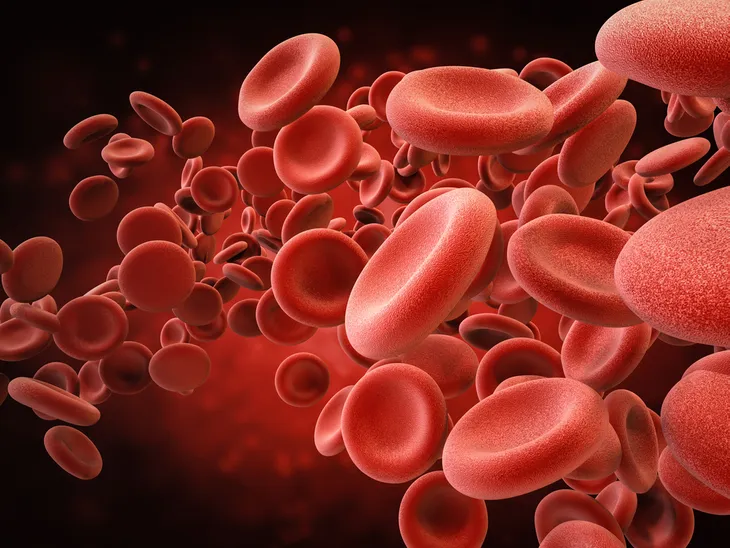- Men over the age of 50 are at an elevated risk of heart, liver, and kidney disease.
- Don’t rush to conclusions when receiving test results, because doctors perform broader tests first before deciding if they need to conduct more specific diagnostic tests.
- Some medications can have the side effect of raising or lowering electrolyte levels, blood cell and platelet counts, and other proteins and enzymes, so your doctor may test your blood more frequently if you’re on medication.
- Ask your doctor what other tests are appropriate for someone with your unique health conditions.
Are you confused whenever you go to the doctor and hear things like “A1C,” “INR” and other acronyms that sound like a language you don’t speak? You’re certainly not alone. As you get older, your doctor needs to perform more tests to make sure all your organs are in good health. There are many types of blood tests, and each has a specific purpose. Remember that these tests only show a part of the picture, and your doctor may need to order other tests before determining if there’s cause for concern.
The Most Common Blood Tests
Some of the most common blood tests for men over 50-years old include a thyroid test, the hemoglobin A1C test, a vitamin B12 test, PT and INR test, the brain natriuretic peptide test (BNP), an iron test, basic metabolic panel test (BMP), comprehensive metabolic panel test, complete blood count (CBC) test, and a lipid panel. These tests check for things like an imbalance in thyroid hormones, nutrient deficiencies, prediabetes, and so much more.
Your doctor may recommend one or more of these tests to make sure you’re in good health. Sometimes it takes several tests to provide a full and accurate assessment of your health and any potential medical conditions. Let’s dive into what these blood tests are and what they tell your doctor.
Thyroid Tests
Thyroid hormones help regulate your metabolism and energy levels. As a person ages, it’s possible for the thyroid glands to stop producing enough hormones. In other cases, the thyroid may become overactive, which presents a different set of problems. What your doctor is looking for here is balance, and the blood test looks for the thyroid-stimulating hormone (TSH) and free thyroxine (FT4) levels.
Symptoms of thyroid problems can include weight gain, feeling tired all the time, and having difficulty concentrating. If you’re prescribed medication, your doctor may want to perform a thyroid test routinely to make sure the medication is working.
A1C
The hemoglobin A1C test may sound complicated if you listen to someone explain how it works, but the end result is an assessment of your average blood glucose level over the past several months. An A1C test can identify if you’re a diabetic or suffering from prediabetes. Since your pancreas may produce less insulin as you get older, it’s important to check your A1C often.
If you have diabetes, you’re most likely required to have an A1C test at least twice a year. This allows your doctor to see if you’re taking the right dose of medication or if the amount of insulin you take is optimal. As time goes by, your medications may become less effective, and your doctor may increase the dosages or place you on new medications.
Vitamin B12
Your body needs vitamin B12 for a variety of critical functions, and many people begin to experience low vitamin B12 levels when they get older. Vitamin B12 tests search for two substances in your blood: vitamin B12 and methylmalonic acid. Since each substance influences the other in your body, a doctor can look at both to determine if there’s a potential problem.
Symptoms of low vitamin B12 levels can include feeling very tired, physical fatigue, and changes in memory. Doctors can recommend supplements and dietary changes to improve your numbers.
PT and INR Test
Prothrombin time (PT) and International Normalized Ratio (INR) assess how your blood clots. As you age, your risk of heart disease grows, so it’s important to evaluate whether you’re at risk of developing blood clots. That’s what these tests determine. They can reveal if your blood clots too quickly or if you have thinner blood that puts you at risk of excessive bleeding or getting infections easily
If you’re on a blood thinner, you need to have this test several times a year. Doctors prescribe medications, such as Warfarin, to treat atrial fibrillation. These medications reduce the blood’s ability to clot. If the medication dosage is too high, you may be at risk of a fatal bleeding episode.
BNP Test
This test is called the brain natriuretic peptide test (BNP), and the name is really confusing. BNP is a peptide found in your heart that only escapes when there’s some form of heart damage. Don’t get too alarmed at the words “heart damage” just yet, as the test is supposed to identify the risk or progression of heart disease. An elevated BNP level means your doctor simply needs more information to assess your risk levels.
You may need to undergo further testing to diagnose a heart condition if these levels are high. If you’re already being treated for congestive heart failure, your doctor may order this test routinely to see how your treatment plan is working out.
Iron Test
Testing the iron level in your blood may help a doctor determine if you’re anemic. What’s interesting is that some people with anemia don’t actually have low iron levels, so your doctor may order additional tests. An iron test can also reveal if you’re suffering from an inflammatory disease. Inflammation often causes iron levels to spike in the blood, so having too much iron can cue your doctor into potential issues.
If the test results indicate your iron is too low or high, your doctor may order some other tests before deciding on a treatment plan.
Basic Metabolic Panel
Your body relies on substances called electrolytes for many of its primary functions. The basic metabolic panel tests your sodium, chloride, potassium, nitrogen, carbon dioxide, creatinine, and glucose levels to give your doctor a snapshot of what’s going on with your health. Certain medications may increase or decrease your electrolytes to dangerous levels. This test can detect problems early on so that your doctor is able to adjust your medications or put you on supplements that restore your electrolyte balance.
Doctors also use this panel to help diagnose infections in the lungs, kidney disease, hypoglycemia, and diabetes. Your doctor may want you to have a basic metabolic panel once a year at the very least.
Complete Blood Count
Complete blood count tests look at all the different types of cells you have in your blood. This test can make sure you’re not anemic or immunocompromised, diagnose an infection, and determine if your platelet count is high enough. As you age, it becomes more important to evaluate your blood cell count on a yearly basis because this helps a doctor decide if other tests are needed.
Some medications can increase or reduce your white blood cell count, so your doctor may want to monitor these results if you’re taking such a medication. Irregular results are likely to prompt your doctor to order more tests before rushing to a conclusion.
Comprehensive Metabolic Panel
A comprehensive metabolic panel includes the results from the basic metabolic panel above but digs even deeper. It also evaluates your calcium, protein, albumin, bilirubin, phosphatase, AST, and ALT levels. That’s a lot of science right there, but in short, these are substances your liver produces or manages.
This test can determine if you have liver or kidney problems and if you’re at risk of developing kidney stones or gallstones. Your doctor may order more tests based on the results to see if you have any blockages in your urinary tract, liver, or kidneys.
 novak.elcic / Shutterstock
novak.elcic / ShutterstockLipid Panel
This test evaluates your cholesterol levels and is broken down into four parts. It looks at good cholesterol, bad cholesterol, triglycerides, and the total amount of cholesterol in your blood. Having too much cholesterol in your blood can trigger a heart attack or stroke, so your doctor may want to make sure you’re managing your cholesterol levels with the right diet and medications, if necessary.
If you have high cholesterol, you may be prescribed medication to treat it. To make sure the medication is working properly, you may need to have a lipid panel performed regularly so that your doctor can monitor your progress.
Interpreting Test Results
When your doctor provides you with a copy of your test results, look at the recommended ranges on the chart before looking at your result. For most tests, the ideal result rests within an acceptable range rather than one particular number.
It’s important that you understand what your results mean and what they say about your health. So, don’t be afraid to ask your doctor questions. Ask your doctor to thoroughly explain the results of your blood tests, and ask them to explain what the results say about your health. If your results aren’t in the ideal range, your doctor will work with you to make a health plan to help get you on the right track.














